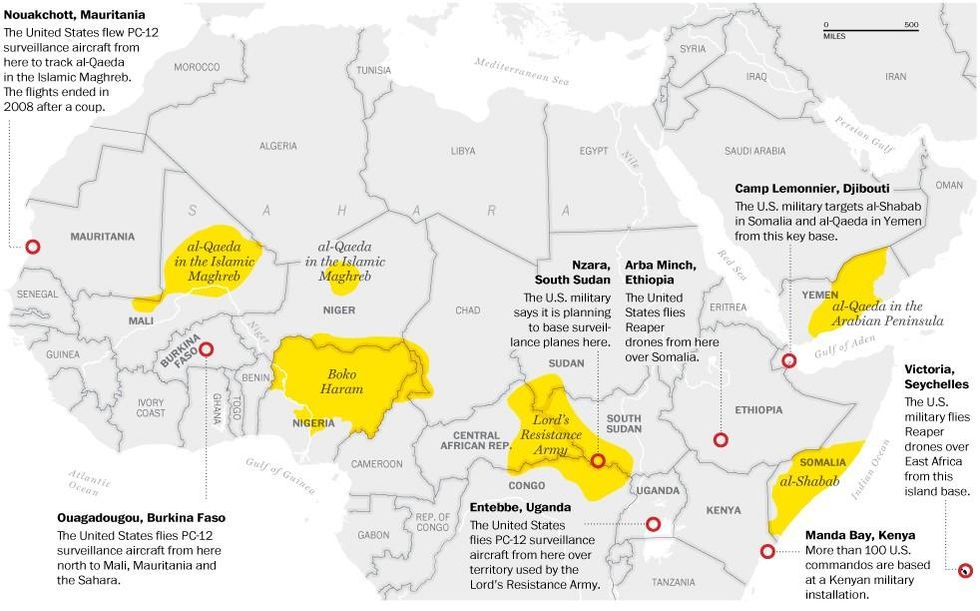The US military and intelligence apparatus, with the help of private military contractors, has been quietly generating a vast spying network across Africa, building a series of airstrips and outposts and operating a fleet of retrofitted planes for surveillance missions across the continent, reports the Washington Post.
The program has been in existence since 2007, but details of the extent to the US military presence is only now being revealed. The surveillance is overseen by U.S. Special Operations forces, according to the Post's report, but relies heavily on private military contractors and support from African troops.
The totallity of the program underscores the extent to which the US has waged a secretive "shadow war" in Africa -- justifying missions in countries like Somalia, Ugananda, Burkina Faso and Mauritania as part of its "global war on terrorism".
* * *
The Washington Post: U.S. expands secret intelligence operations in Africa
The nature and extent of the missions, as well as many of the bases being used, have not been previously reported but are partially documented in public Defense Department contracts. The operations have intensified in recent months, part of a growing shadow war against al-Qaeda affiliates and other militant groups. The surveillance is overseen by U.S. Special Operations forces but relies heavily on private military contractors and support from African troops.
The surveillance underscores how Special Operations forces, which have played an outsize role in the Obama administration's national security strategy, are working clandestinely all over the globe, not just in war zones. The lightly equipped commando units train foreign security forces and perform aid missions, but they also include teams dedicated to tracking and killing terrorism suspects.
The establishment of the Africa missions also highlights the ways in which Special Operations forces are blurring the lines that govern the secret world of intelligence, moving aggressively into spheres once reserved for the CIA. The CIA has expanded its counterterrorism and intelligence-gathering operations in Africa, but its manpower and resources pale in comparison with those of the military. [...]
The results of the American surveillance missions are shrouded in secrecy. Although the U.S. military has launched airstrikes and raids in Somalia, commanders said that in other places, they generally limit their involvement to sharing intelligence with allied African forces so they can attack terrorist camps on their own territory.
The creeping U.S. military involvement in long-simmering African conflicts, however, carries risks. Some State Department officials have expressed reservations about the militarization of U.S. foreign policy on the continent. They have argued that most terrorist cells in Africa are pursuing local aims, not global ones, and do not present a direct threat to the United States.
The potential for creating a popular backlash can be seen across the Red Sea, where an escalating campaign of U.S. drone strikes in Yemen is angering tribesmen and generating sympathy for an al-Qaeda franchise there.
In a response to written questions from The Washington Post, the U.S. Africa Command said that it would not comment on "specific operational details."
# # #




